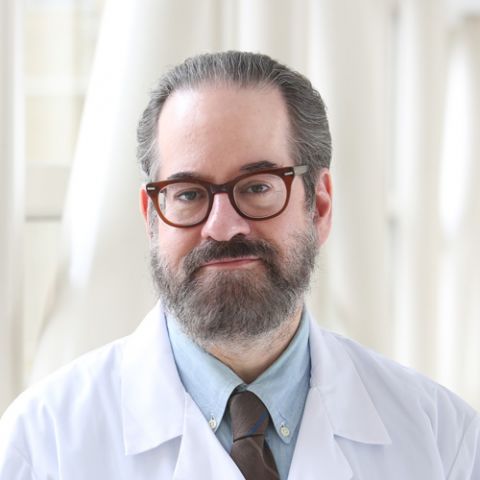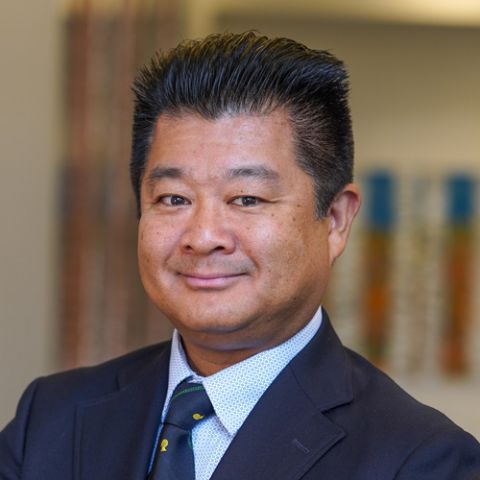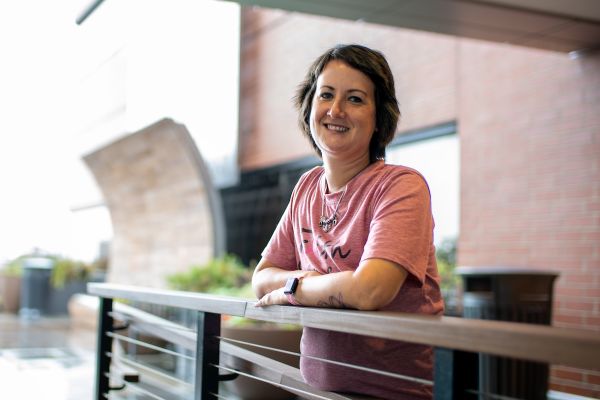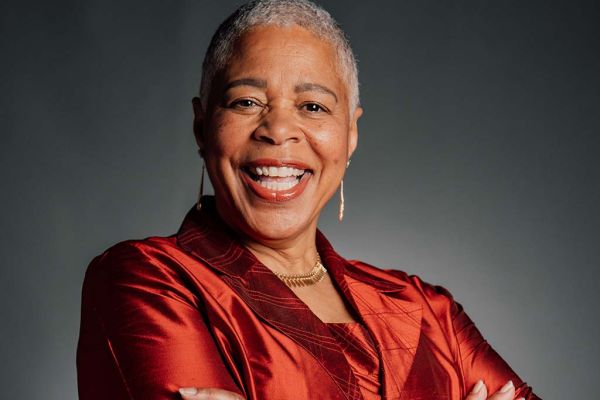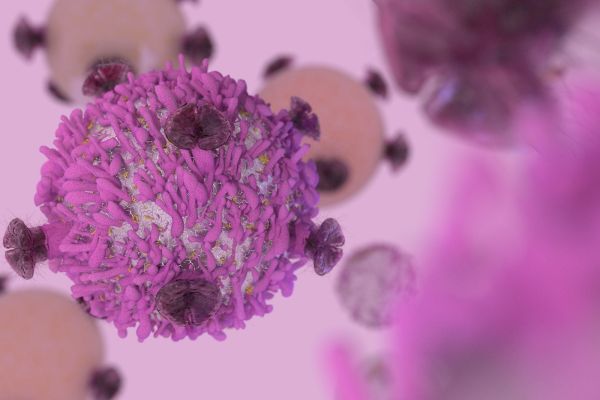When Edith Lazatin’s family gathered to watch her ring the Victory Bell after completing treatment for breast cancer, her young grandson accidentally let go of a balloon, allowing it to rise to the skylight inside the lobby of Roswell Park Comprehensive Cancer Center.
Like the balloon, Edith’s spirits were lifted and her cares drifted away, cancer-free after nearly a year of treatment.
“I feel overwhelmed. I’m very thankful that it’s over,” she said then, tears still fresh on her cheeks.
Edith was diagnosed in October 2022 after years of normal mammograms and diligently performing her monthly breast self-exams. Everything was the same, unchanged and predictable, until it wasn’t.
“All of a sudden, there was something suspicious and they wanted to do a biopsy. From there they found the cancer,” she recalls. “I was so surprised. I don’t have a history of cancer in my family. Now I keep telling my sister to do her annual exams.”
Utilizing a clinical trial to treat her cancer
Edith had advanced breast cancer when she met with Kazuaki Takabe, MD, PhD, FACS, Chief of Breast Surgery at Roswell Park. She had tumors with satellite lesions and the cancer had spread into her lymph node, swelling it to 4-5 times larger than normal size. “What was challenging was that the type of breast cancer she had, estrogen receptor-positive subtype, is known to respond less to chemotherapy,” Dr. Takabe says.
Triple-negative breast cancer, the most aggressive form, responds well to chemotherapy before definite surgery, eliminating tumors in more than half of the patients who are treated with it. But those same results are achieved in only about 10% of people with ER-positive cancer.
“Fortunately, Roswell Park had a clinical trial that Edith participated in, and that made her cancer go away in both her breast and lymph nodes,” Dr. Takabe says. “It is known that the patients whose cancers are eliminated by the time of their operations do better in the long term. We know that all chemotherapies are very hard, but in her case, it really paid off. I was happy to see we were able to help her.”
Don't skip your mammogram
Most mammograms are normal… but if yours isn’t, Roswell Park is where you want to be.
The clinical trial was led by Ellis Levine, MD, Chief of Breast Medicine at Roswell Park. It eliminated one of the four chemotherapy drugs, carboplatin, typically used for breast cancer patients, says Jeremy Lazatin, Edith’s son: “The trial was to evaluate the efficacy of the treatment plan without that drug. That drug causes increased side effects. It was really great to have that option. Roswell Park brings cutting-edge science to the forefront and gives options to people that don’t think they have options."
Jeremy says his mother’s diagnosis was a shock to his whole family. He and his sister live in Boston and immediately came home to help with her care after Edith’s diagnosis. They were comforted knowing their mother would be treated at Roswell Park, having grown up in Western New York and understanding the level of care provided by the experts here.
“That gave us a lot of confidence, but it wasn’t until treatment started that we really understood all that Roswell Park does,” he says. “The level of care and understanding of cancer was really helpful for us. It gave us a ‘Roswell peace of mind,’ knowing that while my sister and I were away, the nurses and doctors here were taking good care of our mom. That was invaluable to our family.”
A brighter, happier birthday
Edith’s treatment began on November 7, 2022, one day before her 60th birthday. She rang the Victory Bell on November 13, 2023. That was more than enough reason to celebrate the passing of another year.
Through it all, Edith maintained her sunny disposition, Dr. Levine says. “Mrs. Lazatin has always been very kind and appreciative to both me and my team. The warm smile and thankfulness that Mrs. Lazatin always shared with us helps us to get through the day.”
With cancer in her rearview mirror, Edith continues to remind others of the importance of caring for their health. “I know it’s painful, but mammograms can save you. I don’t like them either but if that’s the only way to save you, you have to do them.
“Early detection is best! If I didn’t go annually, who knows, my cancer might have been worse. My advice is, follow your doctor’s advice, do your mammogram every year and follow your treatment plan, whatever it is. Trust your doctor — and go to Roswell Park.”
Editor’s Note: Cancer patient outcomes and experiences may vary, even for those with the same type of cancer. An individual patient’s story should not be used as a prediction of how another patient will respond to treatment. Roswell Park is transparent about the survival rates of our patients as compared to national standards, and provides this information, when available, within the cancer type sections of this website.

